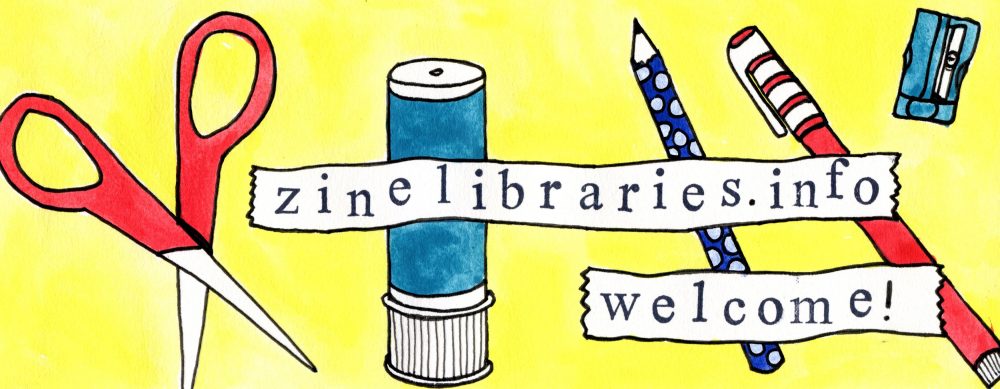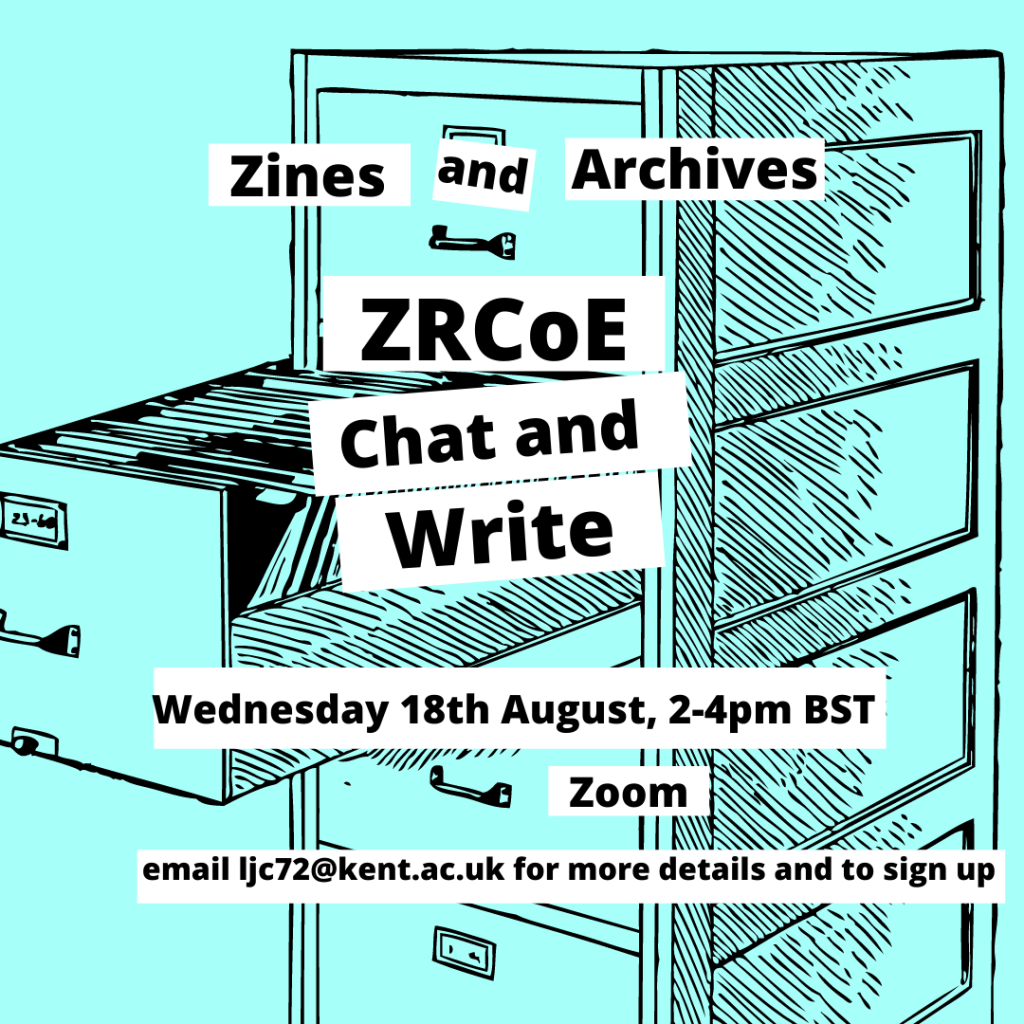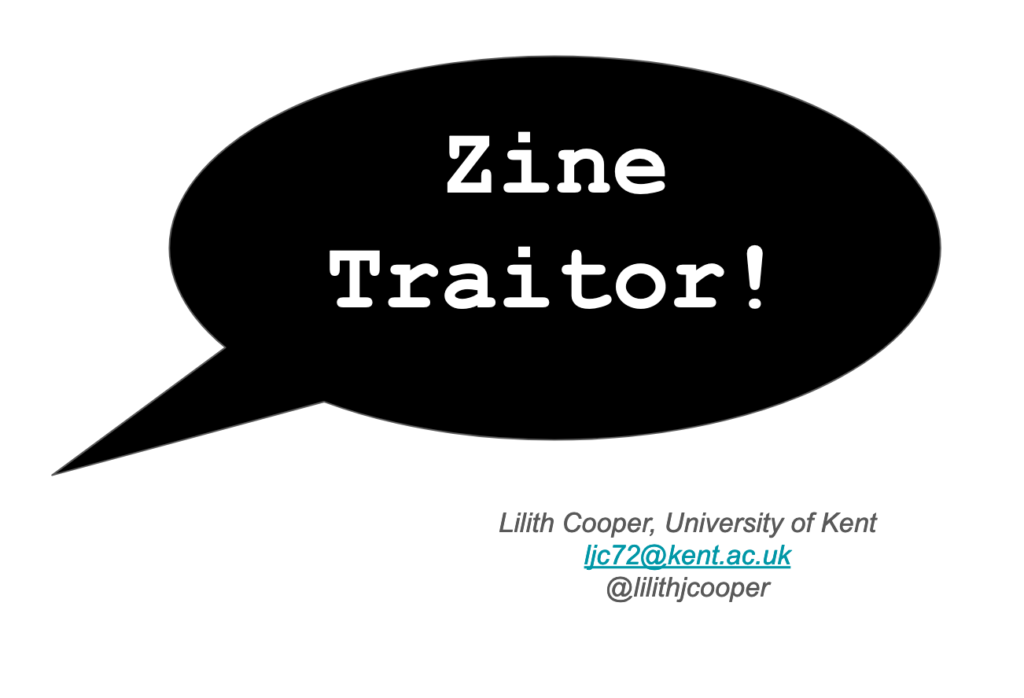Whereas “access†is getting to read and look at online archives, or in places like zine libraries, zine fairs, or special collections reading rooms, “use†means reproducing or quoting from zines. Reproduction can include copying zines in their original formats and redistributing them; printing portions in books; or any kind of online sharing, from comprehensive archive projects, to publishing images online newspapers, blogs, or any form of social media. This section should guide yourself and others when it comes to questions of zine use best practices and ethics regarding copyright and seeking permissions (and using citations!)
Most importantly, we consider ourselves members of a community:  As zine makers and zine librarians, our practices are not just about what’s legal, but also about what’s respectful to the people and the work.
Copyright and Ethical Use
The U.S. copyright code has a special section for libraries, allowing librarians to make copies for researchers to use for their own research. This assumes you won’t be sharing it or reproducing it in any way. If you do want to reproduce something, copyright law requires that you ask permission from authors (there are time restrictions on these, but we’re assuming that you’re mostly going to be working with late 20th century and contemporary authors, so these won’t apply). If you are reproducing for educational purposes or significantly transforming the original, your use may fall under Fair Use (discussed further below).
However, in our experience, reproducing or sharing zines is not just about copyright. It’s also about zinesters’ right to decide how their work is distributed and how widely, and how it is contextualized. It’s also about community, respect, and just being a nice person.
Zines are not like mass-distributed books. They are often self-published and self-distributed, and sometimes printed in very small runs, intended for a small audience. In addition, perzines are by definition “personal,†and zinesters may feel different about having their zines distributed in print than they would about having them openly available on the internet or print. This can be especially true in the case of “historical†zines in library collections — for example, a teen girl writing a zine for her close friends in 1994 may not want her zine distributed online or in print 20 years later.
Some zinesters also feel that context is important. This can mean the format – that it was meant to be on paper, and held in the hands – or it can mean that the zine works best when it’s read as a whole, rather than having one or a few pages excerpted or reprinted.
Asking for permission
There are many different uses of zines you should seek permission for. For students and researchers who want to use excerpts or even images in an academic paper that isn’t going to be published in print or online, a citation is usually enough. [See “Cite this Zine†zine: https://zines.barnard.edu/sites/default/files/inline/citethis2010.pdf]  If you want to publish an image from a zine in print or online, we recommend obtaining permission from authors. There are some gray areas or casual uses that zinesters may not usually request permission for, like posting a picture from a zine or the cover on Twitter or Instagram or in a blog, usually with a short credit including the title of the zine and/or the author. Copying an entire zine, even for personal use, is generally not a respectful practice unless the creator specifies copyleft or appropriate Creative Commons permissions.
In cases where you are not planning to reproduce a zine, researchers or journalists writing extensively about a particular zine creator or community should get in touch with those people directly. The zine library holding their works is not a proxy for the people who created them.
Whenever you reproduce or describe a zine online, in social media, in a library catalog or website, or other venue, if the zine creator(s) contact you and request that you remove the content or edit it, we recommend respecting their wishes. You may be able to argue fair use based on these principles: (1) the purpose of the use; (2) the nature of the work used; (3) the amount and substantiality of the work used; and (4) the effect of the use upon the potential market for or value of the work used. However, in our community, it’s not just about what’s legal, it’s about what’s respectful. We advise getting explicit permission whenever possible.
What does asking for permission mean? If you are publishing a book or academic article, the editor or publisher may provide you with their official form to get a signature. You can create your own form if you are working independently. If you use a formal letter, we recommend writing a more conversational email explaining who you are and what you are seeking.
What to include (from the Purdue Library website):
- Your name, address, telephone number, and email address.
- Your title/position and name of any institution you might be affiliated with.
- The date of your request.
- A complete and accurate citation.
- A precise description of the proposed use of the copyrighted material as well as when and for how long the material will be used.
- A signature line for the copyright holder including their title if they are representing a company and the date.
Tracking down the creator of a zine can be difficult, particularly for those published in the 1990s (pre-internet/email times) or under a pseudonym. If you can find contact info on the zine, try using that, or using google to search for an email address, blog, facebook account, etc., to make your request. The zine librarians email list [https://groups.yahoo.com/neo/groups/zinelibrarians/info] or other online forums may be helpful in tracking down people. Document your efforts to contact the person. If you are doing a project with multiple zines that require permission, use a spreadsheet to keep track of when/how you attempted contact. This will not completely protect you legally, but it is important to do your due diligence in this process. If a zine has more than one author, you may need to contact the editor (if there is one clear person) as well as the creator of the content you wish to use. Locating one of those people will most likely lead you to the others. Sometimes if a zine was created collectively, one person may feel authorized to speak for the group, and in other cases, they may wish to each individually give permission for the usage.
Guide to copyright permissions:
https://www.lib.purdue.edu/uco/Resources/permissions.html
Fair Use for Libraries:
http://www.arl.org/focus-areas/copyright-ip/fair-use/code-of-best-practices#.VG9HuYvF_To


